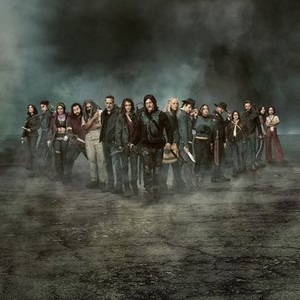
The fall season seems to be the period of recognizing the dead, but in medieval Europe; winter is the real period of fear and death. It had been a strongly held belief in those days that the Devil roams the land, talking with whomsoever he would, so people make sacrifices to entreat the spirit of death roaming the land; those were the days when the Vikings held sway in Northern Europe, an environment where only men of Lion of your dare to venture.
The real truth may be the fearsome power of nature and the fact that it was little understood at the time; the impact of the long, cold season where the nights are longer and people must stay indoors, in a period when technology was primitive and applied only by a few, when human cooperation was little and the government was a loose network, offering very little attachments to settlements as well as little availability of knowledge, that is sufficiently enough for people to protect themselves. Even today, natural phenomena beyond human comprehension will bring all men to their knees; without doubt tsunamis or floods beyond usual or any hitherto unknown natural phenomenon will be devastating and people will react typically – Call on God!
Despite the advancement of science and the availability of great technologies, the season of the dead is ingrained in the human psyche; it is even accepted somehow to be the truth that the dead actually do not disappear. It seems comforting that the living can have celebrations that bring back the dead to have communion with the living; this brings joy to the heart of living people that there is a possibility that the dead are aware of the living and they may have satisfaction with the thought that they are not forgotten.
The peoples of ancient civilizations prepare to meet the devils that harass them at winter time; the spiritualists of those times have determined that a sacrifice kept at the door will be seen as a treat to appease the spirit of death to avoid the threat of death, a festival that has metamorphosed to the Halloween with its costumes that ended in the night of treats and tricks. As Christianity gained ground in Europe, it sought to eliminate the pagan practices of the Vikings and other European tribes of then but it proved abortive and so Halloween remains, perhaps the most enduring practice of the ancient men of Northern Europe to date, it is surprising that a few others are beginning to come back, in the past few years, between six thousand to ten thousand people (6-10,000) attend the Summer Solstice at Stonehenge, England.
October 31 is Halloween, which is essentially the day of the dead in Western societies but the Mexicans that have a mixed heritage of Spaniards, a southern European tribe also honor the dead between Oct 31 and November 2, it is essentially the same practice with a slight variation. For the Mexicans, foods are prepared and placed in places as if the dead will come to dinner; before that people will visit the graveyard, decorate it, and pray for or to the dead; somehow, people expect something because, at the end of it all, there is some satisfaction that the people of the past are honored.
Even the Church follows suit with All Saints Day which falls usually around the same period. It began as a day in the Church world to remember the martyrs, those that paid great prices for their faith since about the 4th Century AD when it used to be around Easter period but it got moved to be inserted in the season of death. These thoughts may have influenced the secular powers to recognize those that laid down their lives to defend the society at wars sometimes around the same period because the Armed Forces Remembrance Day follows shortly.
Deep below the surface is the spiritual influences of societies that may pretend that they have no rooms for myths or spirits or the afterlife or any matter that can
not be proved by the laws of science but the force that binds societies together is shared values with roots in myths and stories that people find difficult to let go and anyone that can break those things from the society may also succeed in driving such a people to extinction. The ties that bind a people together are beyond bread and butter but a shared sense that they are of one another and even beyond the grave, they hold their thoughts to be true and expect it to be as they have always believed. For this major reason, the season of death may be rephrased as the season of reflection, because the tie that binds is perhaps further appreciated and reinforced.
Written By
Pst. Amos Dimeji
Comments are closed.